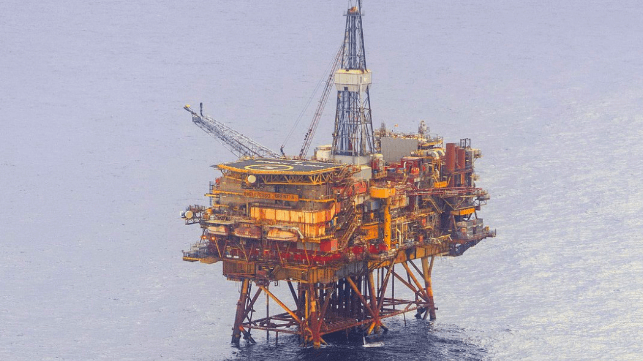UK Gov't Hands North Sea Offshore Sector a "New Lease on Life"

The UK is planning to bolster offshore oil and gas production and offshore wind as part of an all-of-the-above energy security strategy, the administration of Prime Minister Boris Johnson announced Thursday.
"We’re going to make better use of the oil and gas in our own backyard by giving the energy fields of the North Sea a new lease of life," said Johnson in a statement. "For years, governments have dodged the big decisions on energy, but not this one."
Europe's energy costs have soared in recent months, driven up (in large part) by the political unreliability of its Russian oil and gas suppliers. The UK is less dependent on Russian energy than its allies in continental Europe, but it is still exposed to spiking global prices and the prospect of reduced energy security.
The UK has been attempting to offset these costs for its own citizens by providing subsidies, but the government believes that the long-term solution is to reduce dependence on imported oil and gas. This starts with a "second lease of life" for the UK North Sea offshore industry. Achieving a net-zero economy is still the ultimate goal, but not "immediate extinction" for domestic oil and gas production.
About half of the UK's gas demand is imported, but the government would like to cut that proportion. An estimated 560 billion cubic meters of gas remains in the UK North Sea, and the government will promote its use. This will include another offshore licensing round as early as this fall; an accelerated permitting process to "take years off the development" for new offshore projects; and investing in carbon-capture clusters to offset the climate impact of the activity.
Offshore wind also figures prominently. The UK has an extra 12 GW of offshore wind power capacity in the pipeline, and the government is aiming to develop 50 GW by 2030. The concrete changes include cutting the project consent time from four years to one year, allowing "strategic compensation environmental measures" to offset environmental impact of development, cutting paperwork on wildlife impact assessments, and setting up a "fast track consenting route" for priority projects.

that matters most
Get the latest maritime news delivered to your inbox daily.
This jump in capacity will help to offset the UK's need for natural gas powerplant operation. Natural gas plants contribute the largest share of the UK's electrical power, second only to nuclear, and half of that gas is imported.
In a radical departure from green-energy orthodoxy, the government also plans to embrace the next generation of nuclear powerplant technology. The UK was a pioneer in commercializing nuclear power, and Johnson called for Britain to lead the way again by "investing massively" in this zero-carbon source of energy. With more offshore wind, more nuclear and more gas, the UK could begin to produce more clean hydrogen, the main ingredient needed for fueling hard-to-decarbonize industries. The objective is to secure 25 percent of the UK's power needs through nuclear by 2030.
